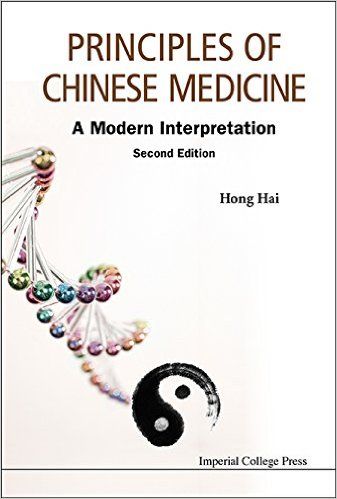We use cookies to make your experience better. To comply with the new e-Privacy directive, we need to ask for your consent to set the cookies. Learn more.
Principles Of Chinese Medicine: A Modern Interpretation (Second Edition)
As the world's most comprehensive and deeply researched system of alternative and complementary medicine, Chinese medicine enjoys a large following in scientifically developed communities. Yet its concepts and principles have been shrouded in mystery and obscure language. This path-breaking book strips this ancient science of its mystique and metaphysical pretentions and interprets it to strike common ground with biomedical science. Concepts like qi and meridians are interpreted not as physical entities, but as constructs to facilitate diagnosis and therapy using heuristic models. Written for medical professionals, philosophers of medicine and discerning readers interested in holistic therapies, the book offers a unique perspective of Chinese medicine in an advanced biomedical world. It has practical chapters on cardiovascular disease, irritable bowel syndrome and cancer, and a compilation of Chinese herbs. This second edition of the acclaimed Theory of Chinese Medicine has new material on chronic diseases and the intriguing possible convergence of biomedicine and TCM.
In the hand this is a satisfying text – hardback and perfectly bound. Heavy for its compact format, its production values shine through in the quality of the paper and print. At over £50 the hardback edition reflects this, but happily there is a paperback edition at half this price.
The author’s background is interestingly diverse and includes engineering,economics and TCM MD degrees, a spell as a pharmaceutical CEO, work as a member of the Singapore parliament as well as a UK PhD in the scientific basis for Chinese medical theory. Just up my street, I like divergent thinkers, especially those who are rational and grounded but can wrap their minds around the beguiling possibilities to be found in Chinese medicine.
To summarise this book in a nutshell, we need only to imagine Ted Kaptchuk’s enlightening Chinese Medicine classic The Web That Has No Weaver re-written to include a respectful scientific critique of each of the ideas described. Hong Hai takes us through the gamut of basic acupuncture and Chinese medicine theory, interpreting jingluo, wind, phlegm, zangfu, qi and so on with the mind of a scientist. This he does in a very readable and engaging manner. Having done the same analysis using my own ‘science mind’ for a great many years I can say that Hong Hai generally hits the nail right on the head. Thankfully, he avoids the temptation to indulge in over-speculation or reach into the outer limits of quantum physics to support his narrative. Starting from a respectful orientation, the author’s calm, grounded approach is just what is needed to counter the harsh, poorly-informed, bigotry that we see dressed up as science by those with little knowledge. Hong Hai really does understand the medicine and its native language and culture as well as the philosophy and methodology of science, and he communicates it well.
There is little doubt that Hong Hai is aware that, beyond what he presents in this book, there is a still higher level of discourse to be explored. He will know, too, that this discussion is more technical and harder to present in an engaging manner. As a few have discovered, biomedicine is excellent in its ability to identify individual facts but struggles to engage with complexity, it is best when faced with simply causality – clinical examples such as infection or a traumatic injury. Medical science has long been wedded to the idea of single chemical interventions affecting single biochemical entities in the body. Now, the new field of systems biology seeks ways of modelling complex multivariable systems and their emergent properties which has led to a realisation by some that Chinese medicine’s explanatory model evolved with complexity in mind. Hong Hai does include a few pages on this. Also, there is a whole raft of scientific investigation into Chinese medicine that aims to identify patterns of biomedical correlates that correspond to Chinese medicine’s diagnostic patterns. The author largely keeps his discussions away from these interesting but more technical areas.
From time to time the discourse becomes just a little too banal for those of us in the profession (see box). However, readers will forgive this in recognition of the quality of the much of the content. Principles of Chinese Medicine , like Ted Katchuk’s Web, attempts to straddle the publishing territory between interested lay reader and early-stage practitioner. For lay readers I think it should be quite effective in creating a non-fantastical sense of what is involved in this medicine. For practitioners there is a lot of useful understanding crammed in here that will help you in your ability to communicate this medicine to your patients by giving you insights that may otherwise take years to acquire.
Charles Buck
| Author | Hong Hai |
|---|---|
| Publication Date | 20 Sep 2015 |
| Publisher | Imperial College Press |
| Number of Pages | 284 |
| Book Format | Hardback |
* Orders shipped outside of Europe are eligible for VAT relief and will not be charged VAT.


